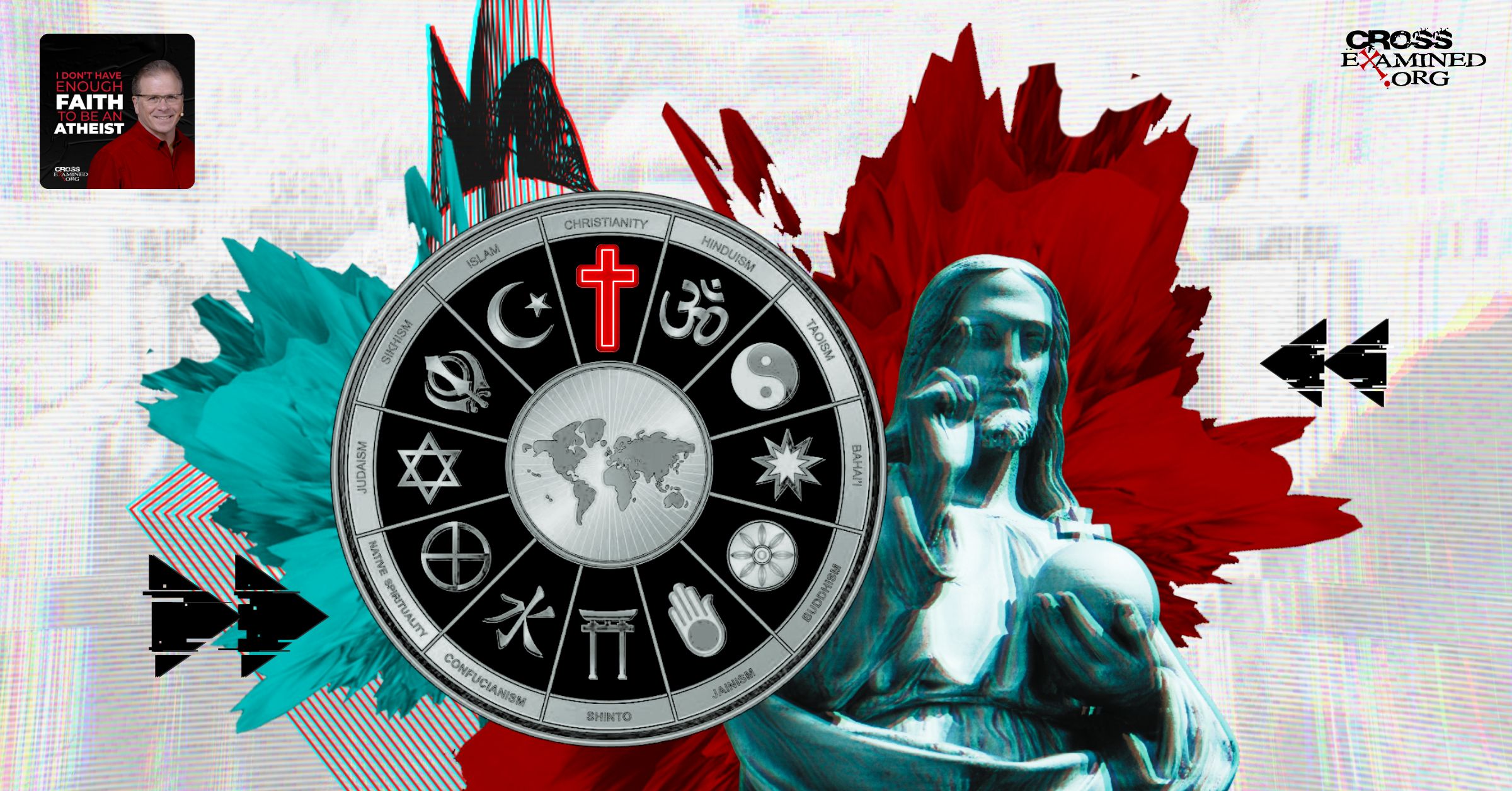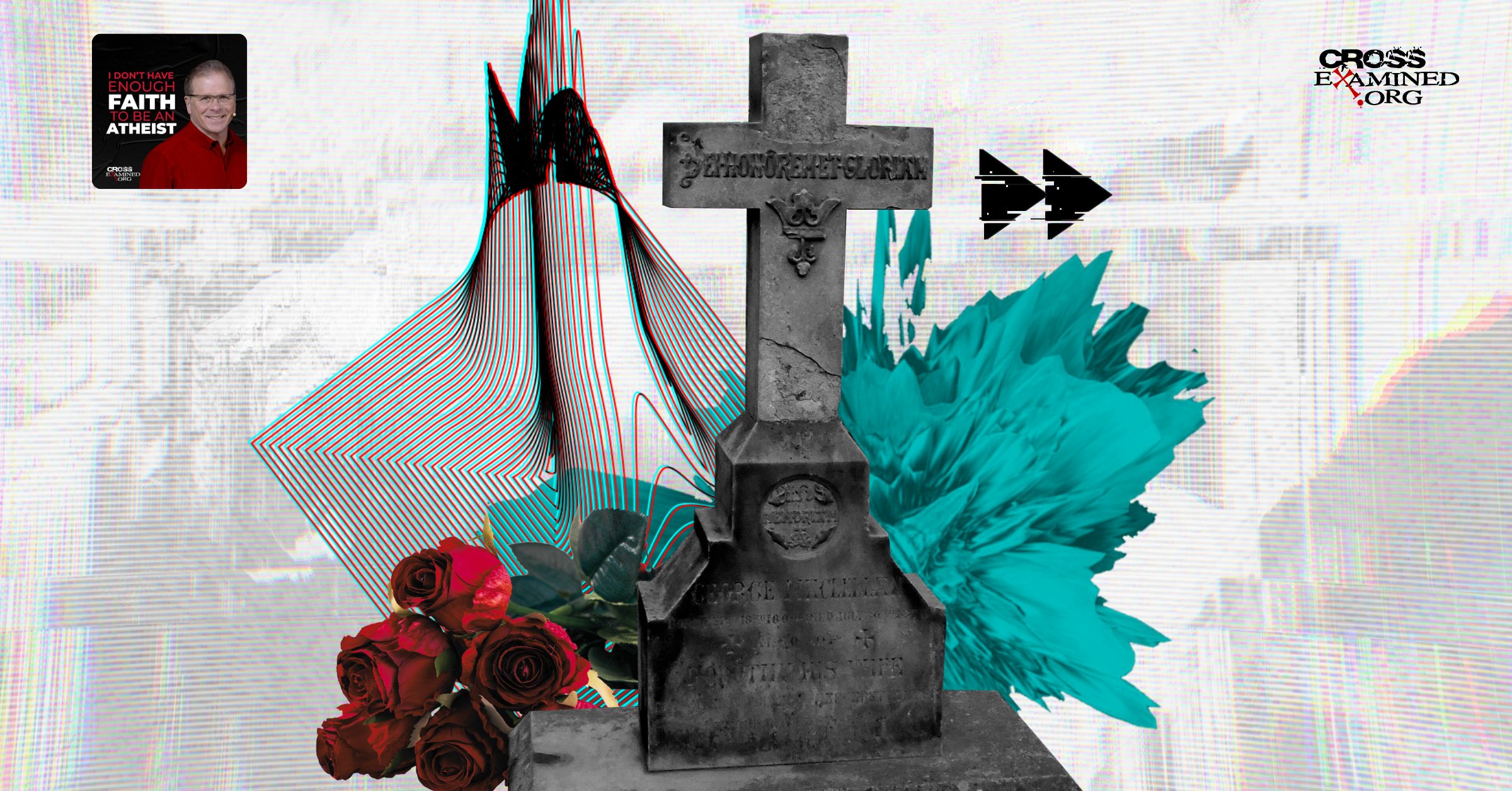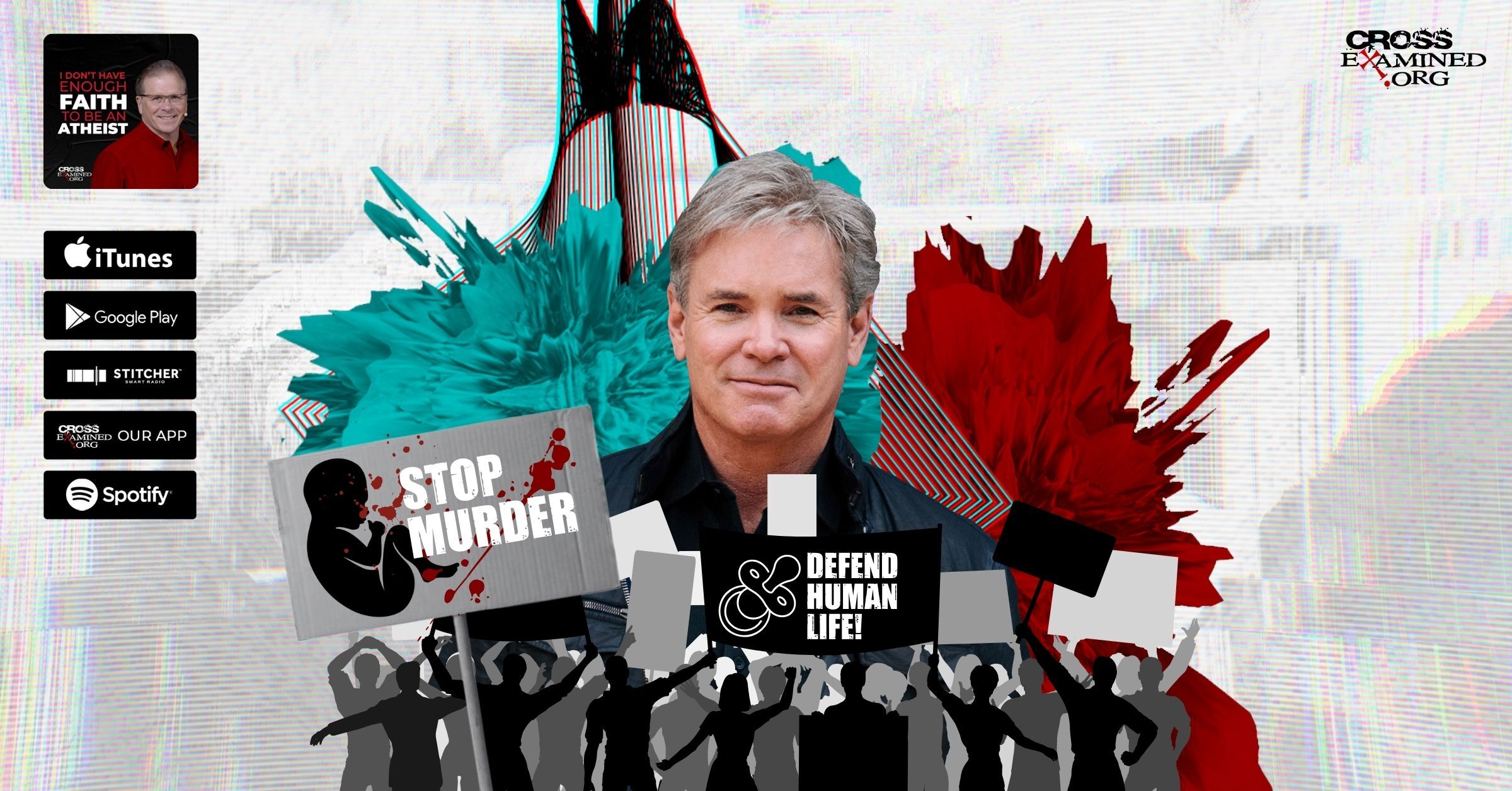“Being Good” Isn’t Enough For Salvation
By Al Serrato
The point of Christian apologetics is to “defend” the faith, and the point of the faith is to proclaim the good news of salvation to the world. Salvation, naturally enough, means saving, and a person only needs saving when he is in some peril. But ask many people today what peril they are in: they may tell you they’re worried about the state of the economy or inflation, or about the rising crime rates across the country, or about difficulties they might be having at home. It’s doubtful that they will throw in that they’re also concerned about the ultimate destiny of their soul, or that they wish they could be sure that they will spend eternity in God’s presence in the company of those they have loved here.
Why is that? Why are so many people today so confident that their soul does not need salvation? Though there are an increasing number of atheists, most people still recognize that there is a God who created them and all there is around us. Nonetheless, though fallen away from the faith they once knew, they do not seem worried about how God will one day judge them. Most often, if pressed, the modern secularist will provide a variation of: “Look, I’m a good person, after all, and God will judge me accordingly. There’s nothing for me to be worried about.”
There are dozens of definitions of “good” but for our purposes, let’s assume that most people mean “good” as something along the lines of “morally excellent, virtuous or righteous.” God presumably will tally all the morally excellent, virtuous or righteous deeds they have done in their lives, and this will tip the “scales of justice” in favor of entry into heaven.
But this analogy, upon reflection, actually provides scant reassurance. After all, a scale is only used if there is something to be placed on the other side, something against which the one side is weighed or measured. If a “good“ deed tips the balance in one direction, then failing to perform such a deed, or worse yet acting in ways that are decidedly not good, moves the needle in the other direction. Most people would agree that acting in a “selfish“ manner, i.e. making decisions that benefit only oneself and not the others in one‘s life, is not a “good“ way to act. But selfishness is part of the human condition. Parents see it in their young children, and most parents try to move children away from selfishness into more altruistic types of behavior. Add to that the times that we are not simply failing to do good but are intentionally doing wrong, without caring about the harm our actions may bring to others. Seen from this perspective, we have a real problem, for God is all-seeing and all-knowing. He lives eternally and sees all that we have ever thought or done; the things we may view as in our distant past remain in his eternal present. For anyone engaging in a clear-eyed and rational assessment of the situation, there is real cause to be concerned that the scale upon which we are being measured will quickly tip against us.
Let’s approach this with a modern example. Repeated studies tell us that an increasing percentage of the American population is overweight or obese. Health experts consistently warn of the many negative consequences that can attach to excessive weight, ranging from greater risk of serious health consequences from Covid to various types of illnesses and cancers. While some involuntary factors may contribute to obesity, this unhealthy lifestyle does still involve the repeated choice to eat to excess. I suspect no one starts out in life wanting to tip the scales against himself by choosing gluttony as a lifestyle. More likely, the end result is the product of many small decisions, played out repeatedly over the course of time. Indeed, it is difficult to fight the human capacity for self-deception. We ignore the evidence of our eyes, and of the scale, as we continue to feel “pretty good” about ourselves and the choices we make. We applaud ourselves for skipping dessert or starting a diet, all the while ignoring the bulging beltline that displays the direction in which the scale is tilting.
So too, it seems, with eternal things. We applaud ourselves for donating to charity, or volunteering at the soup kitchen. We give ourselves a pat on the back for each time we keep our temper in check. We laud ourselves for our sense of tolerance and enlightened thinking and surround ourselves with people who feel and think the same. In so doing, we focus only on the one side of the scale, neglecting to remember the many times we fell short of the mark…or worse, engaged in intentional bad behavior.
Banking on our ability to keep the scale tipped in our favor – on the side of “good” outweighing bad – simply fails to consider how a perfect God views our behavior. Like battling obesity through diet and exercise, the struggle is incremental. We may in fact do much that is good and worthy of praise. But like the defendant in an earthly court, the misdeed that has brought him before the court isn’t ignored when the defendant seeks to impress the judge with the many good deeds he has performed in his life. The point of the sentencing, on a finding of guilt, is to attach the appropriate consequence to the misbehavior in question. Standing before a perfect God and asking him to forget our misdeeds because we also happened to have done some good in our lives will be similarly unavailing. How does one go about impressing a judge who has both set the standard of perfection and is Himself perfect in every conceivable way?
The good news of course is that the One who made the scale, and who will do the judging, has given us the means to put the scale back in balance. This first requires us to see ourselves clearly enough to accept that we cannot meet God’s standard of perfection on our own. When Jesus took our sins upon himself on that cross two thousand years ago, he provided the means for us to become reconciled with God, to be “perfected” so that we can be ready and worthy to stand in the presence of a perfect being. It is Jesus who does the work of salvation, not us and our meager efforts at being “good.”
Trying to do good is a laudable goal. Sadly, too often today it is in short supply. But doing “good” isn’t going to be enough when that someday comes, as it will for each of us, that we meet our Maker.
Recommended resources related to the topic:
Is Original Sin Unfair? by Frank Turek (DVD, Mp3, and Mp4)
Was Jesus Intolerant? by Frank Turek (DVD and Mp4)
_____________________________________________________________________________________________________________________________________________________
Al Serrato earned his law degree from the University of California at Berkeley in 1985. He began his career as an FBI special agent before becoming a prosecutor in California, where he worked for 33 years. An introduction to CS Lewis’ works sparked his interest in Apologetics, which he has pursued for the past three decades. He got his start writing Apologetics with J. Warner Wallace and Pleaseconvinceme.com.











